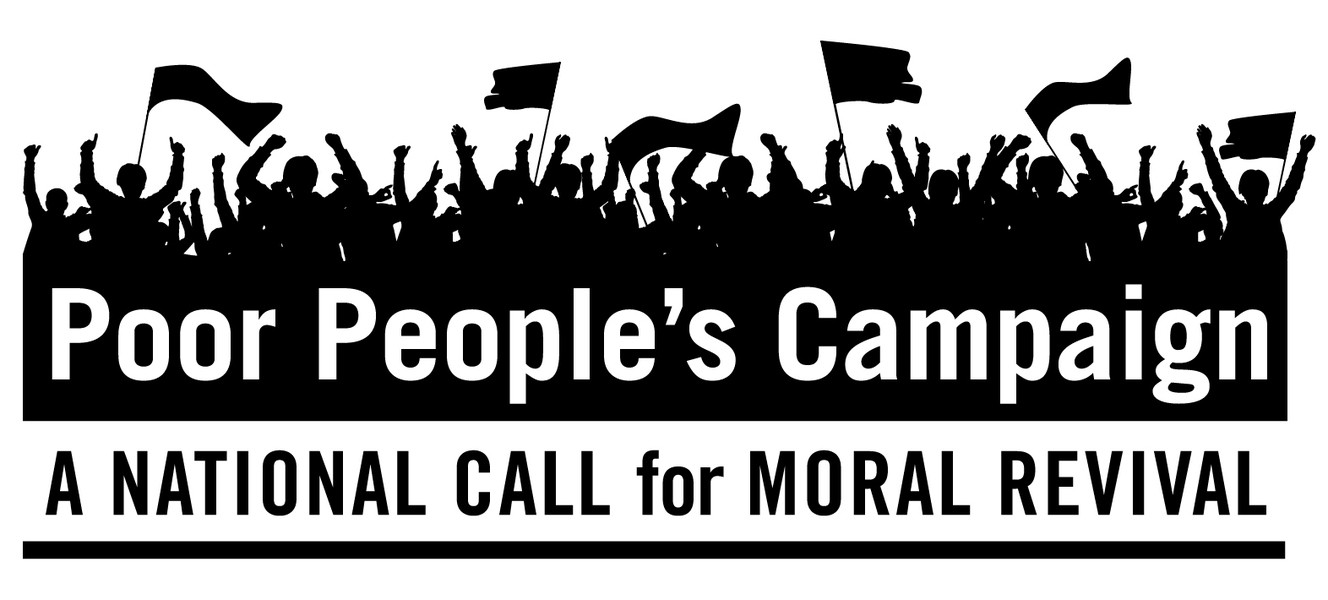The Episcopal Church Executive Council approved a resolution at its January meeting “acknowledging the unfinished work of the 1968 Poor Peoples Campaign, celebrate the revival of the movement as the 2018 Poor People's Campaign: A National Call for Moral Revival.”
The resolution concluded that the Poor People’s Campaign will “recognize these issues of poverty and justice severely affect our domestic and global brothers and sisters and commit to ministry of active engagement, advocacy, and support throughout the Episcopal Church.”
“This is an important partnership and we are enthused that the Episcopal Church is teaming with others in this important initiative,” commented the Rev. Melanie Mullen, Director of Reconciliation, Justice and Creation Care. “The work of the Episcopal Church through General Convention and Executive Council fully embodies the values of the gospel that underlie the Jesus Movement.”
For Episcopalians and the Episcopal Church, the goals of the Poor People's Campaign: A National Call for Moral Revival are:
- To live into our partnerships with the National Council of Churches and with the Poor People’s Campaign;
- To rally Episcopalians on the issues of poverty and justice;
- To ask for consideration in joining marches occurring nationally on April 4, the anniversary of the assassination of the Rev. Dr. Martin Luther King, Jr., and Sunday, May 13, Mother’s Day;
- To encourage all interested Episcopalians to sign up here to participate.
Fundamental Principles of the Campaign
1. We are rooted in a moral analysis based on our deepest
religious and constitutional values that demand justice for all. Moral revival
is necessary to save the heart and soul of our democracy.
2. We are committed to lifting up and deepening the
leadership of those most affected by systemic racism, poverty, the war economy,
and ecological devastation and to building unity across lines of division.
3. We believe in the dismantling of unjust criminalization
systems that exploit poor communities and communities of color and the
transformation of the “War Economy” into a “Peace Economy” that values all
humanity.
4. We believe that equal protection under the law is
non-negotiable.
5. We believe that people should not live in or die from
poverty in the richest nation ever to exist. Blaming the poor and claiming that
the United States does not have an abundance of resources to overcome poverty
are false narratives used to perpetuate economic exploitation, exclusion, and
deep inequality.
6. We recognize the centrality of systemic racism in
maintaining economic oppression must be named, detailed and exposed
empirically, morally and spiritually. Poverty and economic inequality cannot be
understood apart from a society built on white supremacy.
7. We aim to shift the distorted moral narrative often
promoted by religious extremists in the nation from issues like prayer in
school, abortion, and gun rights to one that is concerned with how our society
treats the poor, those on the margins, the least of these, women, LGBTQIA
folks, workers, immigrants, the disabled and the sick; equality and
representation under the law; and the desire for peace, love and harmony within
and among nations.
8. We will build up the power of people and state-based
movements to serve as a vehicle for a powerful moral movement in the country
and to transform the political, economic and moral structures of our society.
9. We recognize the need to organize at the state and local
level—many of the most regressive policies are being passed at the state level,
and these policies will have long and lasting effect, past even executive
orders. The movement is not from above but below.
10. We will do our work in a non-partisan way—no elected
officials or candidates get the stage or serve on the State Organizing
Committee of the Campaign. This is not about left and right, Democrat or
Republican but about right and wrong.
11. We uphold the need to do a season of sustained moral
direct action as a way to break through the tweets and shift the moral
narrative. We are demonstrating the power of people coming together across
issues and geography and putting our bodies on the line to the issues that are
affecting us all.
12. The Campaign and all its Participants and Endorsers
embrace nonviolence. Violent tactics or actions will not be tolerated.
Learn more here (including the demands).
Weeks before the 1968 Poor People's Campaign was to mobilize in Washington DC, Rev. Dr. Martin Luther King, Jr. was murdered in Memphis, having been invited there by Rev. James Lawson. Rev. Lawson continues to train and organize today; you can hear him in two recent NPR programs, as interviewed by Debbie Elliott: Codeswitch's "The Road to the Promised Land, 50 Years Later" and her feature NPR story "When MLK Was Killed, He Was in Memphis Fighting for Economic Justice."
May 13th Mother's Day launch of 40 Days of Moral Action - Stay tuned!


No comments:
Post a Comment